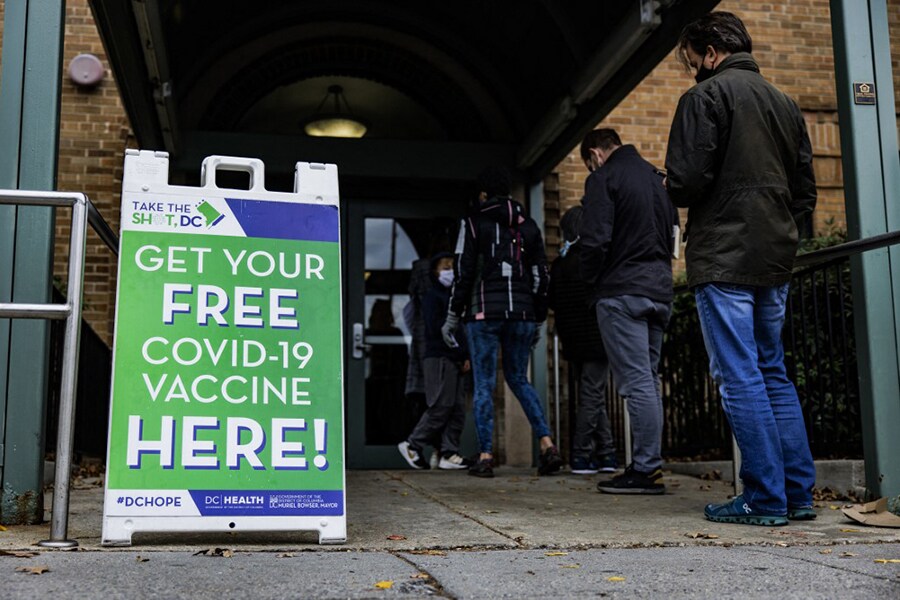
Omicron-fuelled booster drive may hurt access to first shots in poor countries—again
Worldwide, about 73% of shots that have gone into arms have been administered in high- and upper-middle-income countries, according to the Our World in Data project at the University of Oxford. Only 0.8% of doses have been administered in low-income countries
 People line up outside of a free COVID-19 vaccination site that opened today in the Hubbard Place apartment building on December 3, 2021 in Washington, DC. The DC Department of Health is stepping up vaccination and booster shots as more cases of the Omicron variant are being discovered in the United States. Samuel Corum/Getty Images/AFP (Photo by Samuel Corum / Getty Images North America / Getty Images via AFP)
People line up outside of a free COVID-19 vaccination site that opened today in the Hubbard Place apartment building on December 3, 2021 in Washington, DC. The DC Department of Health is stepping up vaccination and booster shots as more cases of the Omicron variant are being discovered in the United States. Samuel Corum/Getty Images/AFP (Photo by Samuel Corum / Getty Images North America / Getty Images via AFP)
As the emergence of the omicron variant of the coronavirus has spurred governments of wealthy nations to step up booster-shot campaigns, the World Health Organization again expressed concern Thursday that the push could further undermine global vaccine equity.
“Broad-based administration of booster doses risks exacerbating inequities in vaccine access,” Alejandro Cravioto, chair of the WHO’s Strategic Advisory Group of Experts on Immunization, told reporters.
The administration of boosters is now outpacing first shots around the world.
Richard Mihigo, coordinator for the WHO’s Immunization and Vaccines Development Program in Africa, said: “If we looked at the data today, even before omicron, we are seeing high-income countries administering more booster doses than even vaccines that are being given in developing countries.”
Because most current infections, which are still overwhelmingly being driven by the delta variant, are affecting unvaccinated people, the WHO said, getting vaccines to those who have no protection should be the priority.
©2019 New York Times News Service







